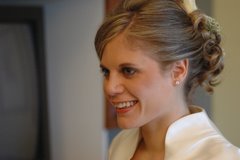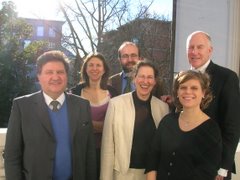
During the last two weeks of April, Douglas Walton from the University of Winnipeg was visiting professor at the University of Lugano. He hold different conferences and research seminars, and gave a PhD course on Types and Properties of Dialogues.
The scientific discussions involved members of the Institute for linguistic and semiotics (Eddo Rigotti, Jakob Wüest, Andrea Rocci, Sabrina Mazzali, Sabine Christopher-Guerra, Agatha Filimon, Radouan Jelassi, Rudi Palmieri, Camilla Palmieri, Joelle Stoudmann and myself) but also colleagues from other institutes: Martin Eppler, Paolo Paolini, Lorenzo Cantoni, Peter Schulz, Stefano Tardini, Davide Bolchini, Sara Rubinelli... Francesco Arcidiacono (University of Neuchâtel) also joined the discussions.
The scientific discussions involved members of the Institute for linguistic and semiotics (Eddo Rigotti, Jakob Wüest, Andrea Rocci, Sabrina Mazzali, Sabine Christopher-Guerra, Agatha Filimon, Radouan Jelassi, Rudi Palmieri, Camilla Palmieri, Joelle Stoudmann and myself) but also colleagues from other institutes: Martin Eppler, Paolo Paolini, Lorenzo Cantoni, Peter Schulz, Stefano Tardini, Davide Bolchini, Sara Rubinelli... Francesco Arcidiacono (University of Neuchâtel) also joined the discussions.
Among the discussion topics, I would mention the notion of commitment in dialogue, the classification of argument schemes, the application of argumentation to different contexts (D. Walton is conducting research on legal argumentation at the moment, whereas the Institute for linguistics and semiotics in Lugano presented in particular the research and teaching activities on financial argumentation), argument visualization tools...
During this period, Chris Reed from the University of Dundee, and Fabrizio Macagno from the Catholic University of Milan, who work together with D. Walton, also participated in the discussions. Chris Reed also gave a presentation during the PhD course for introducing the software Araucaria (http://araucaria.computing.dundee.ac.uk/), which was much appreciated by the participants.




No comments:
Post a Comment